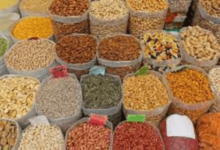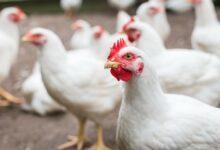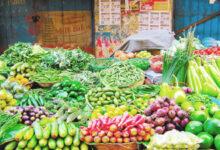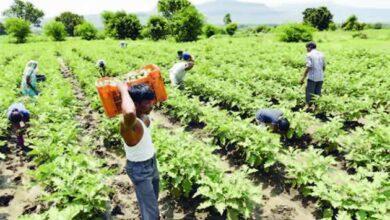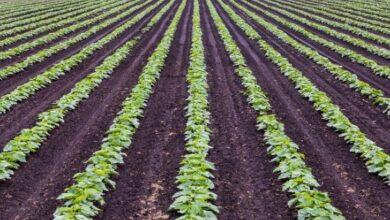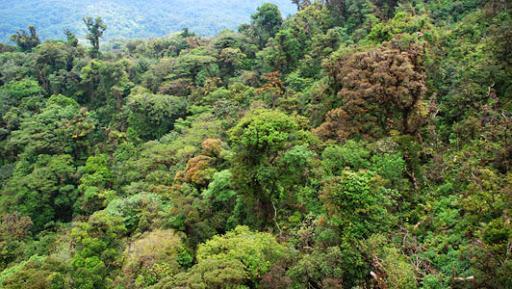
10 Factors Affecting Nigeria Vegetation
Factors Affecting Nigeria Vegetation – Nigeria is a country located in West Africa and is known for its diverse vegetation. The country has a wide range of plant life, from tropical rainforests to savannas and grasslands. The vegetation in Nigeria is influenced by factors such as climate, soil, and topography.InformationGuideNigeria
The southern region of the country is characterized by dense rainforests, while the north is dominated by savannas and grasslands. The country is also home to a variety of tree species, including the oil palm, rubber tree, and cocoa tree. Overall, the vegetation in Nigeria plays a vital role in the country’s economy and ecosystem.
👉 Relocate to Canada Today!
Live, Study and Work in Canada. No Payment is Required! Hurry Now click here to Apply >> Immigrate to CanadaRead Also: 10 Factors Affecting Livestock Production in Nigeria
What is Nigeria’s Vegetation?
Nigeria has a diverse range of vegetation, including rainforests, savannas, and mangrove swamps. The country’s rainforests, located in the southern region, are home to a wide variety of plant and animal species, including many endangered species. The savannas, found in the middle belt of the country, are characterized by grasslands with scattered trees and shrubs. The mangrove swamps, located along the coast, are home to a variety of salt-tolerant plants and animals. Some of the common plants found in Nigeria are baobab, kapok, iroko, mahogany, and rubber.15 Best Industries in Nigeria
Types of Nigeria Vegetation
There are several types of vegetation found in Nigeria, including:
1. Rainforest:
This type of vegetation is found in the southern regions of Nigeria and is characterized by high rainfall and a dense canopy of trees. The vegetation is lush and diverse, with a wide variety of plant and animal species.
2. Savannah:
This type of vegetation is found in the northern regions of Nigeria and is characterized by grasslands with scattered trees. The vegetation is less dense than in the rainforest and is adapted to the dryer climate.
3. Mangrove:
This type of vegetation is found in coastal regions of Nigeria and is characterized by salt-tolerant trees and shrubs. The vegetation is adapted to the saline conditions found in these areas.
4. Swamp Forest:
This type of vegetation is found in the Niger Delta region and is characterized by flooded forests with tall trees and dense undergrowth. The vegetation is adapted to the flooded conditions in these areas.
Read Also: 10 Factors Affecting Decision Making in Nigeria
👉 Relocate to Canada Today!
Live, Study and Work in Canada. No Payment is Required! Hurry Now click here to Apply >> Immigrate to Canada5. Montane Forest:
This type of vegetation is found in the mountainous regions of Nigeria and is characterized by cool temperatures and high rainfall. The vegetation is usually dense with a variety of plant and animal species.
Advantages of Nigeria Vegetation
Nigeria has a diverse range of vegetation, which provides many advantages. Some of these include:
1. Biodiversity:
The country’s varied vegetation supports a wide range of plant and animal species, which increases the overall biodiversity of the region.NYSC Portal
2. Ecosystem Services:
The vegetation in Nigeria provides important ecosystem services such as carbon sequestration, soil conservation, and water regulation.200 Romantic Love Message
3. Economic Benefits:
Nigeria’s vegetation supports a range of economic activities, such as agriculture, forestry, and non-timber forest products.10 Economic Challenges In Nigeria
4. Cultural Significance:
Many of the country’s plant species have cultural and spiritual significance for the local people.
Read Also: Factors Affecting Distribution Of Crops In Nigeria
5. Climate Regulation:
Vegetation plays an important role in regulating the local climate, by providing shade and cooling the air, and by releasing water vapor through transpiration.
6. Medicine:
Many of the country’s plant species have medicinal properties and are used in traditional medicine to treat a variety of ailments.
States in Nigeria that are Known for Vegetation
Several places in Nigeria are known for their lush vegetation, including:
1. Cross River State:
Known for its rainforests and biodiversity, Cross River State is home to the Oban Hills and the Okwangwo Division of the Cross River National Park.
2. Osun State:
This state is home to the Osun Sacred Grove, a UNESCO World Heritage Site that is considered one of the last remaining vestiges of an ancient Yoruba forest.Factors Affecting Nigeria Vegetation
3. Ogun State:
The Yewa Forest Reserve in Ogun State is known for its diverse vegetation, including a wide variety of trees and shrubs.JAMB Portal
4. Edo State:
Edo State is known for its rich biodiversity, including the Obudu Cattle Ranch and the Okomu National Park.
5. Delta State:
The state is home to the Niger Delta mangrove forest which is the largest mangrove forest in West Africa, the delta state is rich in vegetation.
These are just a few examples of the many places in Nigeria that are known for their lush vegetation. Other notable places include the Gashaka-Gumti National Park, the Chad Basin National Park, and the Kainji Lake National Park.
Read Also: 10 Factors Affecting Judicial Review in Nigeria
Factors affecting Nigeria’s Vegetation
Several factors affect the vegetation in Nigeria, including:
1. Climate:
Nigeria’s climate is primarily tropical, which supports a diverse range of vegetation. However, changes in temperature and precipitation patterns affect the growth and distribution of different plant species.
2. Soil:
The quality and fertility of the soil play a significant role in determining the types of vegetation that can grow in an area. Soils that are rich in nutrients and have good drainage tend to support more diverse and productive vegetation.JAMB Portal
3. Human Activity:
Human activities such as deforestation, urbanization, and agriculture have a major impact on vegetation in Nigeria. Deforestation leads to the loss of natural habitats, while urbanization and agriculture can lead to the destruction of natural ecosystems.105 Good Morning Love Messages
4. Natural Disasters:
Flooding and drought affect the vegetation in Nigeria. Flooding damages and destroy crops, while drought makes it difficult for plants to survive.
5. Invasive Species:
Uncontrolled spread of invasive species greatly affects the vegetation of Nigeria. These invasive species may outcompete the native species and disrupt the ecological balance.
6. Elevation:
Elevation affect vegetation in Nigeria. Areas at higher elevations tend to have cooler temperatures and more precipitation, which can support different types of vegetation compared to low-lying areas.
7. Topography:
The shape and slope of the land also affect vegetation in Nigeria. For example, areas with steep slopes may be more prone to erosion and landslides, which affect the growth and distribution of vegetation.
8. Biodiversity:
The diversity of plant and animal species in an area affect vegetation. A diverse ecosystem supports a wide range of plant species, while a less diverse ecosystem may be more vulnerable to changes in the environment.
9. Pollution:
Pollution from industrial, agricultural, and other sources affects vegetation in Nigeria. Polluted air and water kill plants, and make it difficult for them to grow.
10. Government Policies:
Government policies such as land use regulations, conservation efforts, and agricultural subsidies also play a role in affecting vegetation in Nigeria. Policies that support sustainable land use and conservation efforts help to protect and preserve vegetation, while policies that promote industrial development or intensive agriculture have the opposite effect.
Read Also: Various Factors Affecting Health Globally And in Nigeria
Conclusion
Nigeria has a diverse range of vegetation, which include rainforests, savannas, and mangrove swamps. The country is home to a wide variety of plant species, many of which are important for commercial and subsistence use. However, Nigeria faces challenges such as deforestation and land degradation that threaten the sustainability of its vegetation. To preserve Nigeria’s vegetation for the future, the country needs to take steps to protect and conserve its natural resources.
Check JAMB Result
Check and Confirm: How much is Dollar to Naira
